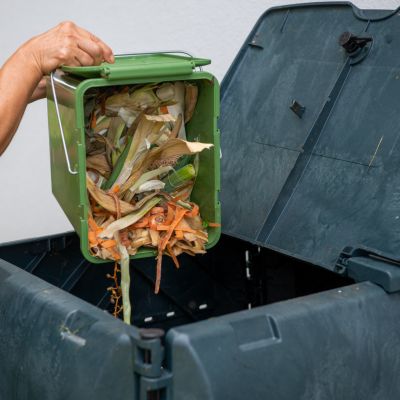
Article: Earthfirst® Packaging Reduces the Impact of Food Waste
Food waste is a vast problem all over the world. Every year, both producers and consumers dispose of a third of global food production; representing 1.05 billion tons annually, according to the United Nations Environment Programme.
Some 30 million tons of wasted food ends up in U.S. landfills each year, according to a 2018 study by the U.S. Environmental Protection Agency. Nearly 90 tons go into EU garbage cans over the same time period.
When food is wasted and ends up in landfills, it decomposes and releases methane and carbon dioxide, contributing to greenhouse gas emissions on top of those generated during its production.
“If wasted food were a country, it would be the third-largest producer of carbon dioxide in the world, after the USA and China,” The World Food Programme states.
Earthfirst® home compostable films and laminates for packaging food products are a tool in reducing the climate impact of food waste, by acting as a high performance barrier to preserve food products as well as adding vital carbon to the soil after use.
Earthfirst Compostable Packaging as a Tool to Prevent and Mitigate Food Waste
Stopping food wastage before it happens should be the first priority and is a large challenge in itself, relying on individual behavior as well as the packaging performance and its carbon efficiency.
Earthfirst®'s certified home compostable packaging excels in preserving food freshness through its sealing and barrier capabilities, which match or surpass those of petroleum-based plastics. This ensures that the flavor and quality of any food product are maintained at their best throughout its intended shelf life.
This high performance is enhanced by its lower carbon footprint during production. By substituting polyethylene packaging with compostable films and laminates like those offered by Earthfirst®, greenhouse gas emissions in the overall production of vegetables and fruit could potentially decrease by up to 7 percent, as reported in a 2022 study published in the journal Resources, Conservation and Recycling.
In addition to substituting polyethylene packaging with compostable films and laminates, removing polyethylene grocery bags can further reduce greenhouse gas emissions. For example half of the GHG emissions in the production of potatoes and onions is due to polyethylene packaging.
If food becomes waste and once the Earthfirst® packaging has served its first purpose, consumers can reuse it to neatly collect and compost peels, trimmings, and leftovers from their meals and food prep either in their Home compost pile or at their local industrial composter.
Earthfirst® solves the challenge of disposing of difficult plastic labels and packaging formats
When discussing the sustainable disposal of food waste, another significant issue arises: the contamination of compost with plastic packaging.
Certain types of labels and packaging present significant challenges for sustainable disposal. Traditional polyethylene product look-up (PLU) barcode labels, commonly found on bananas, apples, and loose produce, pose difficulties for both industrial and home composters. These small, adhesive plastic fragments are hard for consumers to remove and challenging to separate on an industrial scale and can contaminate composting streams.
To address this issue, utilizing PLU labels printed on Earthfirst® material for produce offers a sustainable solution. Whether in commercial or backyard composting systems, Earthfirst® labels maximize compostability, ensuring a positive end-of-life outcome.
Similar challenges exist with single-serve condiment/ketchup packs (sachets) and powdered drink mixes (stick packs), as well as other ubiquitous plastic items. However, transitioning to Earthfirst® home compostable labels, sachets, and stick packs eliminates these challenges, promoting sustainability throughout the product lifecycle.
Earthfirst® Home Compostable Solutions are Beneficial to Soil
Earthfirst® films and laminations are home compostable, which means they will decompose to nurture your lawn or garden right along with your vegetable scraps and fallen leaves. Earthfirst® films are certified Home Compostable by TÜV Austria, a leading ecological certifier in Europe. TÜV’s stringent benchmarks, established in 2003, are integral to European sustainability regulations in packaging.
To further promote sustainable practices, Earthfirst®’s products are eligible to display the OK-HOME compost label from TÜV Austria, empowering brands to visibly commit to responsible waste management.